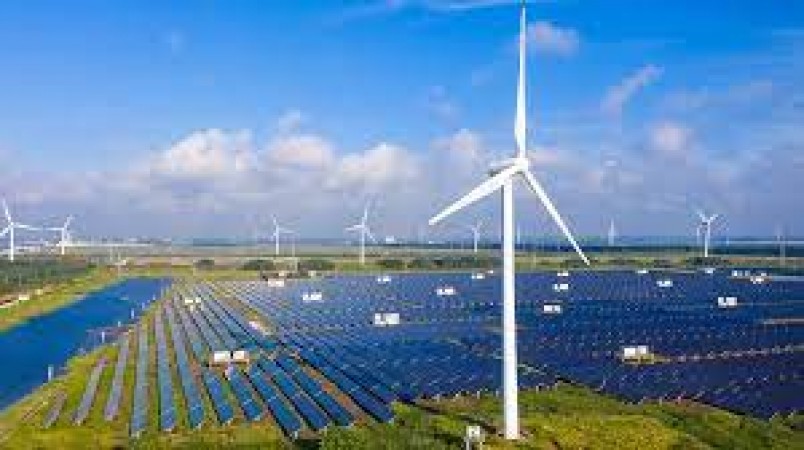
In today's rapidly evolving world, the demand for electricity is higher than ever before. As traditional power generation techniques have been the backbone of our energy supply for decades, there is now a growing interest in exploring modern power generation alternatives that are cleaner, more sustainable, and technologically advanced. This article will compare modern power generation techniques with their traditional counterparts, evaluating their benefits, limitations, and potential impact on the future of energy.
Traditional Power Generation Techniques
Fossil Fuel-Based Power Plants
Fossil fuel-based power plants, such as coal, natural gas, and oil plants, have been the primary source of electricity for many years. These power plants burn fossil fuels to produce steam, which then drives turbines connected to electricity generators. While they are cost-effective and provide reliable power, they are major contributors to greenhouse gas emissions and air pollution.
Nuclear Power Plants
Nuclear power plants generate electricity through nuclear fission, where the nucleus of an atom is split to release a tremendous amount of energy. Nuclear power is known for its ability to produce a significant amount of electricity without greenhouse gas emissions. However, concerns about nuclear safety, radioactive waste disposal, and high initial costs have limited its widespread adoption.
Hydropower Plants
Hydropower plants harness the energy of flowing or falling water to generate electricity. They are a renewable energy source and have been widely used for their reliability and eco-friendliness. However, building large dams can lead to environmental impacts, altering ecosystems and displacing communities.
Geothermal Power Plants
Geothermal power plants utilize the Earth's heat from the mantle to produce steam and drive turbines. This form of energy generation is sustainable and emits minimal greenhouse gases. It is geographically limited to regions with accessible geothermal resources.
Biomass Power Plants
Biomass power plants convert organic materials like agricultural residues, wood, and municipal waste into electricity. While biomass is a renewable energy source, the combustion process can release pollutants and contribute to deforestation.
The Need for Modern Power Generation Techniques
With increasing concerns about climate change and the finite nature of traditional energy sources, there is a pressing need to transition towards cleaner and more sustainable power generation methods. Modern power generation techniques offer promising solutions to address these challenges effectively.
Modern Power Generation Techniques
Solar Power
Solar power harnesses energy from the sun through photovoltaic panels or solar thermal systems. It is a clean and abundant energy source with no greenhouse gas emissions during operation. Advancements in solar technology have made it more efficient and affordable, driving its global adoption.
Wind Power
Wind power converts the kinetic energy of wind into electricity using wind turbines. It is a renewable and emissions-free energy source that is rapidly expanding worldwide. However, wind power's intermittent nature and visual impact on landscapes are challenges to overcome.
Tidal Power
Tidal power captures the energy from ocean tides and currents to generate electricity. It is predictable and highly efficient but limited to coastal areas with strong tides.
Wave Power
Wave power captures the energy of ocean waves to produce electricity. It is renewable and has enormous potential, but it is still in the early stages of development.
Fuel Cell Technology
Fuel cells generate electricity through chemical reactions, typically using hydrogen as a fuel source. They are highly efficient and produce only water as a byproduct. However, the cost of producing and storing hydrogen remains a challenge.
Advanced Nuclear Reactors
Advanced nuclear reactors aim to address the limitations of traditional nuclear power plants, including safety concerns and radioactive waste. They offer potential as a low-carbon and reliable energy source for the future.
Hydrogen Fuel Generation
Hydrogen can be produced through electrolysis using renewable energy sources. It has the potential to serve as a clean energy carrier for various applications, including power generation and transportation.
Advantages of Modern Power Generation Techniques
Modern power generation techniques offer several advantages over traditional methods. They provide a cleaner and more sustainable alternative, reducing greenhouse gas emissions and minimizing environmental impact. Moreover, they contribute to energy diversification and decrease dependence on finite fossil fuels.
Challenges and Limitations of Modern Power Generation Techniques
While modern power generation techniques show great promise, they also face challenges that need to be addressed. Some technologies, like wind and solar power, are intermittent and require efficient energy storage solutions. Additionally, the initial costs of implementing certain technologies can be prohibitive.
Integration and Smart Grids
To fully harness the potential of modern power generation techniques, the integration of renewable energy sources into existing power grids is essential. Smart grid technologies play a crucial role in efficiently managing and distributing electricity from diverse sources.
Environmental Impact and Sustainability
Modern power generation techniques offer significant improvements in environmental sustainability compared to traditional methods. By reducing greenhouse gas emissions and minimizing pollution, these techniques contribute to a cleaner and healthier planet.
The Future of Power Generation
As the world moves towards a more sustainable and greener future, modern power generation techniques will play a pivotal role in meeting global energy demands. A diversified energy mix that incorporates various renewable sources will be vital to ensure a reliable and environmentally responsible energy supply. the shift towards modern power generation techniques presents a promising path for meeting the growing energy demands while mitigating climate change and preserving the environment. Embracing renewable energy sources and advanced technologies will shape a brighter and more sustainable future for generations to come.
Foreign Products and Technological Advancements: Navigating the Trade-offs
The Silk Road: A Historical Network of Trade and Cultural Exchange
Choosing the Right Path: Traditional Medicine or Modern Healthcare?